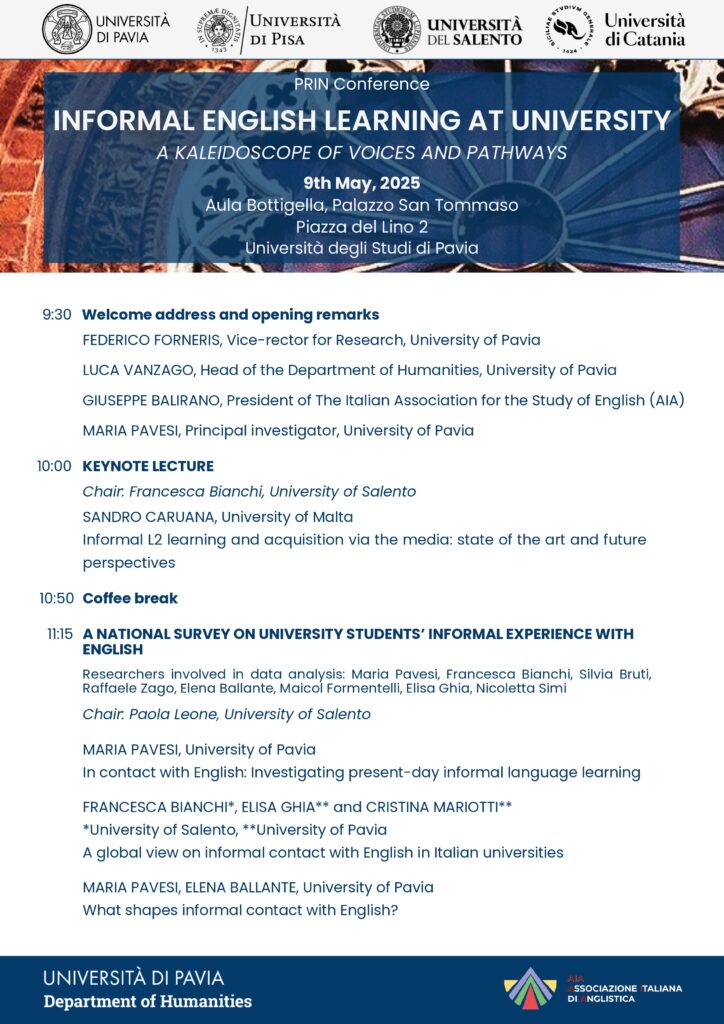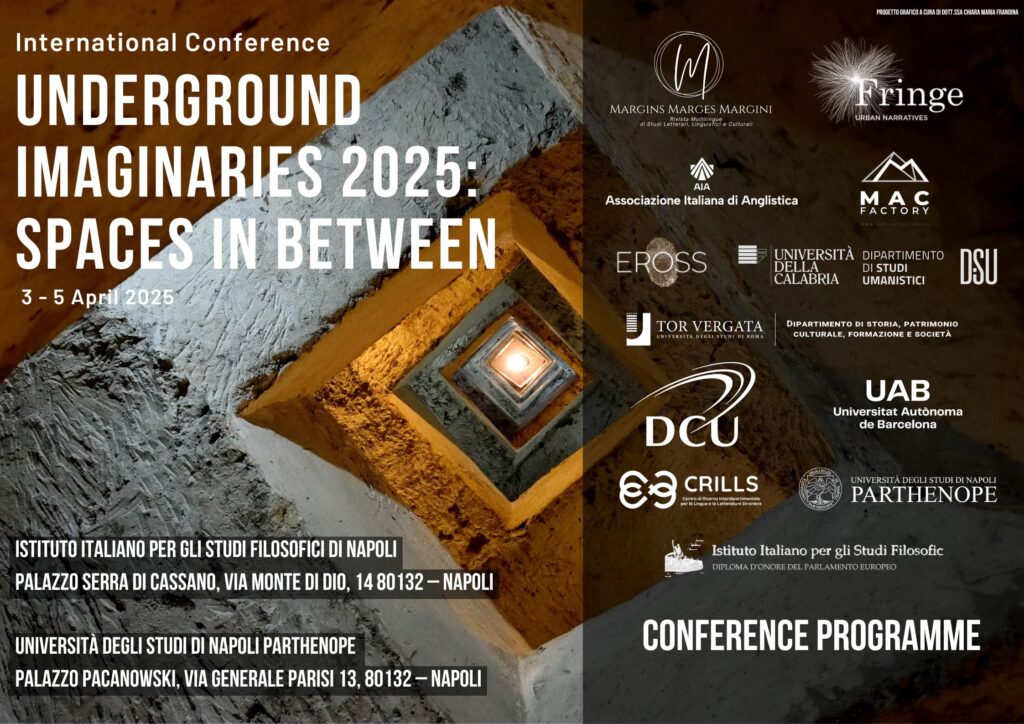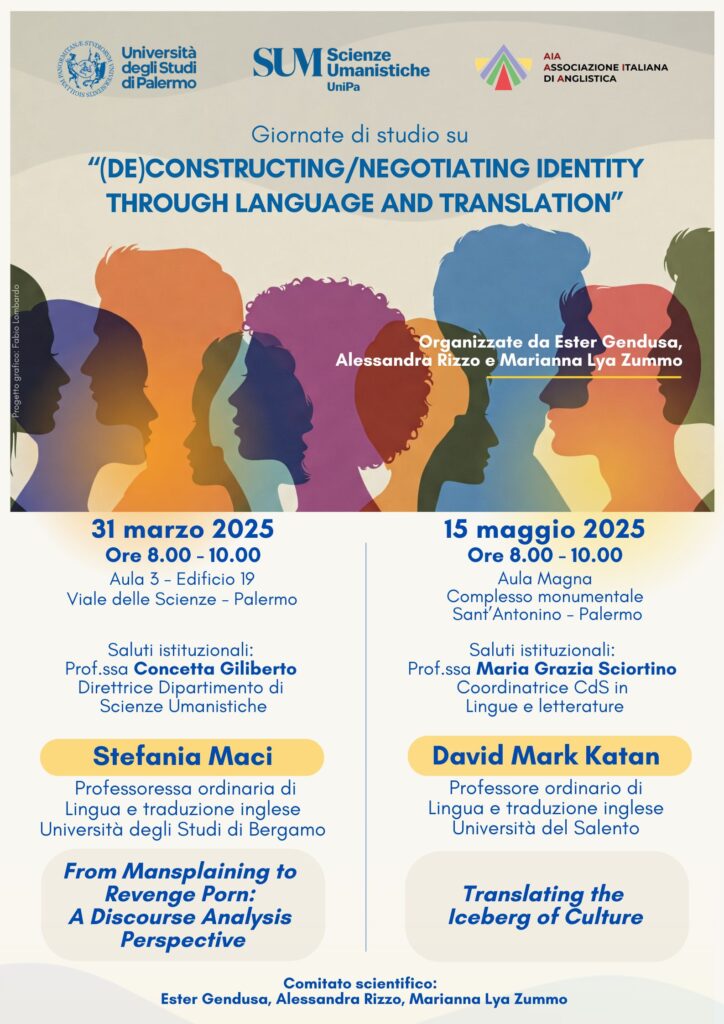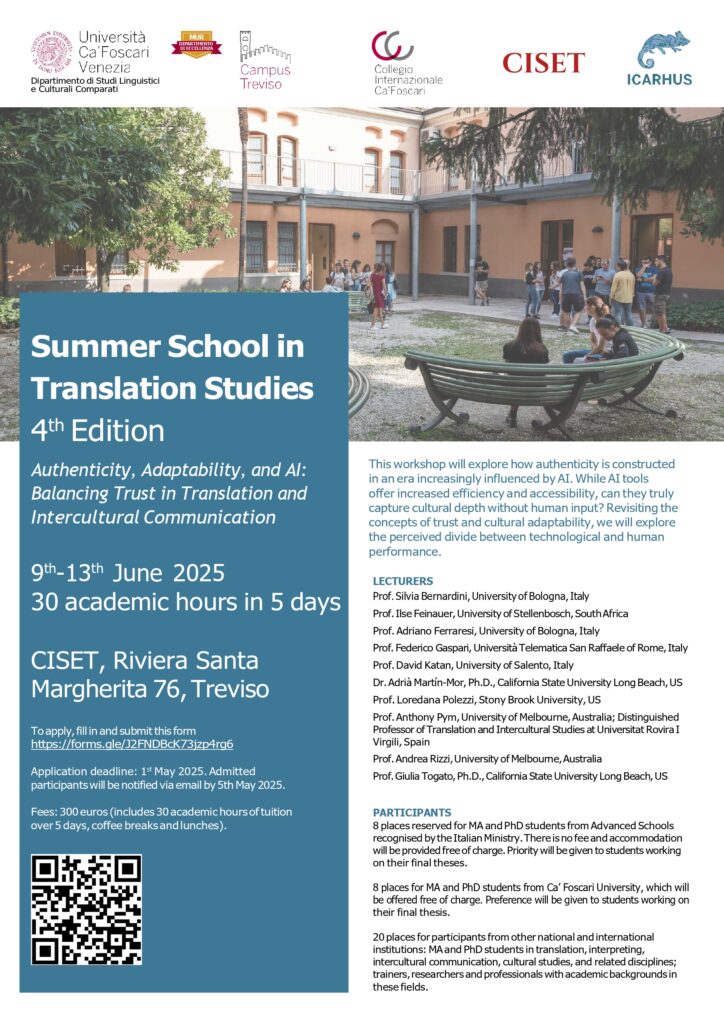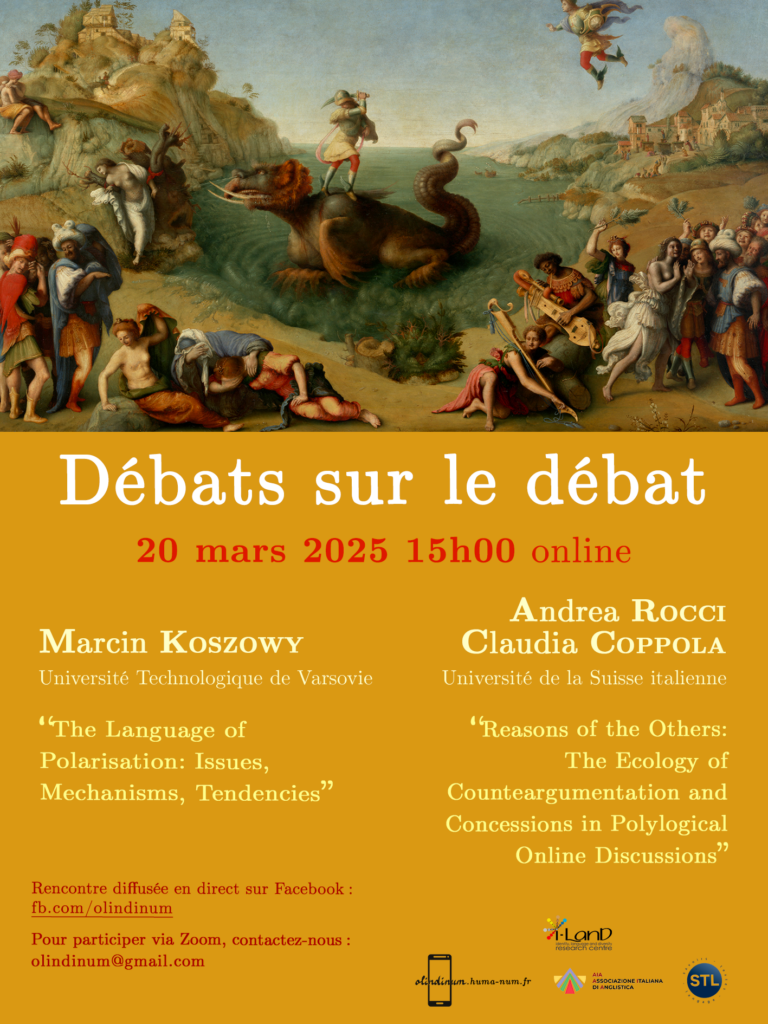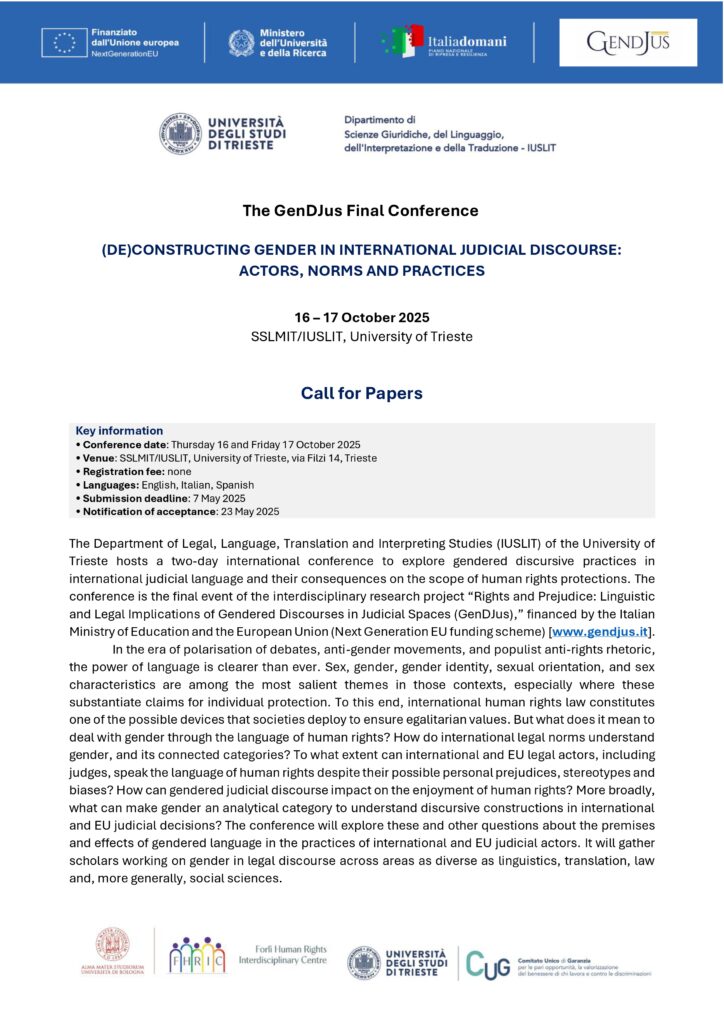Potenza 24-26 September 2025The XXVIII International Conference of O&L will take place at the University of Basilicata. The conference will be held in the Aula Magna of the Francioso Campus and in the Hall of the National Archaeological Museum of Basilicata Dinu Adamesteanu, Potenza. Additionally, on September 27, a visit will be organized to the Sassi of Matera, which were listed as a UNESCO World Heritage Site in 1993. The detailed program of the visit and the registration procedures will be provided to interested participants. The Conference will focus on the following topics:The names of ‘villains’ (antagonists and negative characters).The relevance of the names of literary ‘villains’ and/or ‘antagonists’ is already evident when we consider a peculiar linguistic phenomenon: many of them have become so famous that they have turned into antonomasies, or even lexicalized into deonyms. Among those attested in the lexical heritage of Italian and its dialects, one could think, for example, of ‘Ganelon / Gano di Maganza,’ which has become synonymous with ‘traitor’ (alongside ‘giuda’), also appearing with the epithet ‘(treacherous) Maganzese’. Beyond this, other purely literary cases can be listed within the same domain, which have already been studied by critics, such as the names of the devils Malebranche in Dante’s Divine Comedy and those of the Shakespearean theatrical characters Macbeth, Shylock, Iago, or the Molière character Tartuffe, may be counted in the same sphere. The name in autobiographical writingsIn autobiography, understood as a literary form, there is an onomastic identity between the author, narrator, and protagonist, which refers to the same entity. The enunciation of the name of the authornarrator-protagonist, therefore, constitutes a key element for reading, capable of guiding the reader’s interpretative cooperation and the process of meaning-making within the work. However, the enunciation of the nominal identity of the one who takes the floor rarely appears within the text, while it is often displayed in the paratext. The narrator who designates himself with a first-person pronoun, therefore, does not have a name, and yet, as Roland Barthes emphasizes, that pronoun, in the narrative, becomes an anthroponym, unless the narrator leaves some onomastic trace within the text. Equally significant are the procedures that affect the names of other characters involved in autobiographical writings, which may, for example, be subject to various kinds of omissions, because they are hidden by anonymity or disguised through substitute names. The same ambivalent attitude may also involve the names of the places where the action is set. Therefore, this section could include all investigations aimed at detecting and revealing the often unsuspected autobiographical resonances hidden behind the onomastics of a text. Anthropological foundations of the name: taboo, apotropaic or magical namesIt is well known that in Le Conte du Graal by Chrétien de Troyes, the reader (and the character who bears the name) comes to know the protagonist’s name only at a very advanced stage of the poem: the revelation assumes an initiatory value, reaching the peak of a difficult process of self-knowledge. The Kretienian ‘taboo of the name’ is certainly not the only example where a literary name seems to regain the magical and apotropaic significance, with complex anthropological meanings, traces of which were widespread and profound in primitive onomastics, and which also characterized the prohibition of pronouncing the divine Tetragrammaton in Jewish tradition. However, in this section, which could also be titled, playing on Freud’s words, Nomen and tabù, one could certainly include other well-known cases seen from different perspectives, such as that of the Erinyes, often referred to by the apotropaic name Eumenides (as in Aeschylus’s tragedy or in the title of the famous novel by Jonathan Littell, Les Bienveillantes, which mirrors the same mythological model of the persecution of Orestes by the Erinyes); or famous literary examples, such as the case of the figure of the Innominato in Manzoni’s novel, struck by a sort of interdiction that evokes the previously mentioned prohibition of pronouncing the divine name. Cases of autonymy: when a character assigns themselves a name, a nickname, or a pseudonymAmong the cases in which a literary character is compelled, for various reasons, to re-name themselves, the first examples that come to mind are certainly classic ones, such as Alonso Quijano / Don Quixote, Jekyll / Hyde, or, in twentieth-century Italian literature, Mattia Pascal / Adriano Meis. Beyond this specific corpus, however, other forms of autonymy can be found, even if seemingly less striking, such as those of the Decameron characters, who assume different onomastic forms from their official names during various disguises: from Tebaldo degli Elisei / Filippo di San Lodeccio to Lodovico / Anichino, or, with a change of gender, Madonna Zinevra / Sicuran da Finale. To mention a twentieth-century example, one can think of the programmatic battle names that partisans give themselves in post-World War II stories. But other types can also be suggested. One involves the author themselves when they, to some extent, take on a substitute name, either to hide or, conversely, to showcase a particular authorial stance. One thinks of the kaleidoscopic array of heteronyms by Pessoa, but also more unsuspected cases, such as that of Luzi, who in some collections hints at himself under real names and profiles like Simone Martini. Also, in the realm of authorial posture, one can cite the self-deprecating, diminutive autonyms, with a programmatically self-ironic and reductive intent, such as ‘guidogozzano’. Submerged Lucanità: Onomastic Explorations from Rocco Scotellaro to Gaetano CappelliThe occasion of the conference in Potenza offers numerous onomastic insights not only for the general ‘anniversary section’ but also for the more specific literary production of Lucanian authors. This year, in particular, marks the fiftieth anniversary of the death of Carlo Levi, whose Christ Stopped at Eboli (it is needless to emphasize its significance in the history of Basilicata) reveals a complex relationship between reality and invention, particularly within the onomastic fiction. Additionally, the onomastic choices of Lucanian poets and writers, which draw from the reality of the so-called peasant civilization, are still underexplored but certainly worth investigating. These include Rocco


